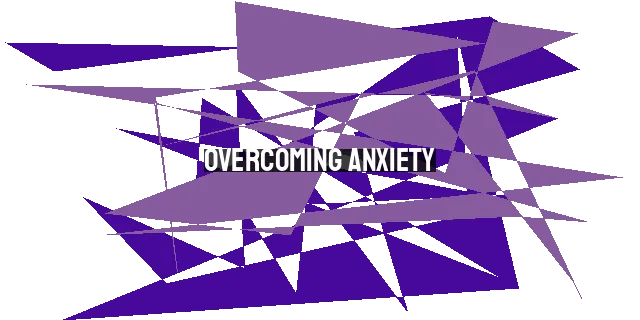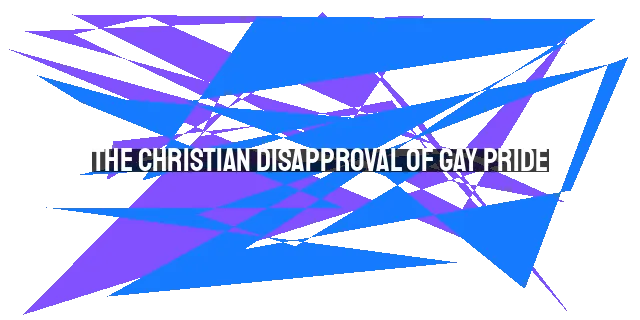The Abortion Controversy: Exploring the Larger Worldview Divide
Larger Worldview Divide: Exploring the Abortion Controversy
Imagine seeking adventure and sparking a lively debate by posting a simple syllogism on your social media page. You assert that intentionally killing innocent human beings is wrong, abortion intentionally kills an innocent human being, and therefore abortion is morally wrong. Little did you expect the overwhelming response and the range of comments that followed. Some accused you of hating women, others questioned your commitment to supporting children after they are born, and a few even dismissed your opinion altogether because of your gender. It seems like there is more at play here than a simple disagreement. Let's delve deeper into the larger worldview divide that fuels the abortion controversy.
The Heart of the Debate: Who Counts as One of Us?
At the core of the abortion controversy lies a serious philosophical debate about the value and dignity of human life. It raises the fundamental question of who counts as one of us. Are unborn babies human beings with inherent worth and equal rights, or are they merely disposable entities without moral consideration?
As we explore this question, it's important to recognize that the abortion debate extends far beyond personal opinions and emotional responses. It is deeply rooted in differing worldviews and beliefs about the nature of humanity, morality, and the role of government in protecting life.
Biblical Perspective on the Sanctity of Life
For those who hold a biblical worldview, the belief in the sanctity of life finds its foundation in the very words of God. Scripture consistently affirms the inherent value and dignity of every human being, from conception to natural death.
In Psalm 139:13-16, King David poetically acknowledges that God knits us together in our mother's womb, intricately forming every part of our being. This passage paints a vivid picture of God's intimate involvement in the creation and development of each individual, emphasizing their worth and uniqueness.
Furthermore, the Ten Commandments include the clear mandate, "You shall not murder" (Exodus 20:13). This commandment sets a definitive boundary around the intentional taking of innocent human life, affirming the sanctity and inviolability of each person's existence.
Additionally, the Bible repeatedly speaks to the value and protection of the vulnerable, including the unborn. Jeremiah 1:5 declares that God knew the prophet before he was formed in the womb, indicating a recognition of personhood and divine purpose even before birth. Similarly, Luke 1:41 describes how John the Baptist leaped in Elizabeth's womb when Mary, pregnant with Jesus, approached. This account acknowledges the personhood and recognition of unborn babies in the context of God's redemptive plan.
These biblical references, among others, provide a solid foundation for the belief in the sanctity of life and the recognition of unborn babies as fully human and deserving of protection.
The Scope of Human Rights
The abortion debate also encompasses discussions about human rights and the extent to which they should be granted. Advocates for the pro-life position argue that the right to life is the most fundamental and foundational human right, upon which all other rights are built. They believe that without the right to life, no other rights hold any meaning or significance.
On the other hand, proponents of the pro-choice stance often emphasize the rights and autonomy of women, highlighting the importance of reproductive freedom and bodily autonomy. They argue that restricting access to abortion infringes upon a woman's right to make choices about her own body and future.
However, it is crucial to note that the right to life is not simply about personal choice or individual autonomy. It extends to the protection of the most vulnerable members of society, including the unborn. Just as society recognizes and acts to prevent harm to other vulnerable populations, such as children or the elderly, the pro-life position asserts that unborn babies also deserve the same protection and consideration.
Moving Beyond Stereotypes: Loving Women and Upholding Life
One of the most significant misconceptions surrounding the abortion debate is the assumption that being pro-life automatically means hating women or disregarding their needs. This oversimplification fails to acknowledge the complex range of motivations and beliefs held by those who oppose abortion.
Many pro-life individuals and organizations are actively engaged in supporting women facing unplanned pregnancies. They provide practical assistance, such as pregnancy resource centers, adoption resources, and post-abortion healing programs. These initiatives aim to address the multifaceted needs of women, recognizing the importance of both the unborn child and the mother.
Moreover, the pro-life position is not limited to a specific gender. It is a belief held by both men and women who recognize the value of human life and advocate for its protection. Dismissing someone's viewpoint solely based on their gender undermines the importance of open dialogue and respectful engagement on this complex issue.
The Way Forward: Engaging in Constructive Dialogue
The abortion controversy is deeply entrenched in contrasting worldviews and fundamental beliefs about the nature of humanity and the value of life. In order to move forward, it is essential to engage in constructive dialogue that fosters understanding and empathy.
Instead of resorting to personal attacks, it is crucial to listen to one another's perspectives and seek common ground. By recognizing the shared desire for human flourishing and the promotion of the common good, we can work towards solutions that respect the dignity of all individuals involved.
Engaging in respectful conversations that address the underlying philosophical and moral questions is essential for progress. This involves acknowledging the complexity of the abortion debate and the diverse motivations and beliefs held by individuals on both sides.
Conclusion: Embracing the Value of Every Human Life
The abortion controversy is not simply about who loves women and who hates them. It is a profound philosophical debate about the sanctity of life and the recognition of the inherent worth and dignity of every human being.
From a biblical perspective, scripture consistently affirms the value of human life, including the unborn. Recognizing the scope of human rights and the importance of protecting the vulnerable, the pro-life position seeks to uphold the dignity of both the mother and the unborn child.
In order to move forward and find common ground, it is crucial to engage in respectful dialogue, recognizing the diversity of beliefs and motivations. By embracing the value of every human life, we can work towards a society that cherishes and protects the most vulnerable among us.



POST COMMENT
For post a new comment. You need to login first. Login
COMMENTS(0)
No Comment yet. Be the first :)